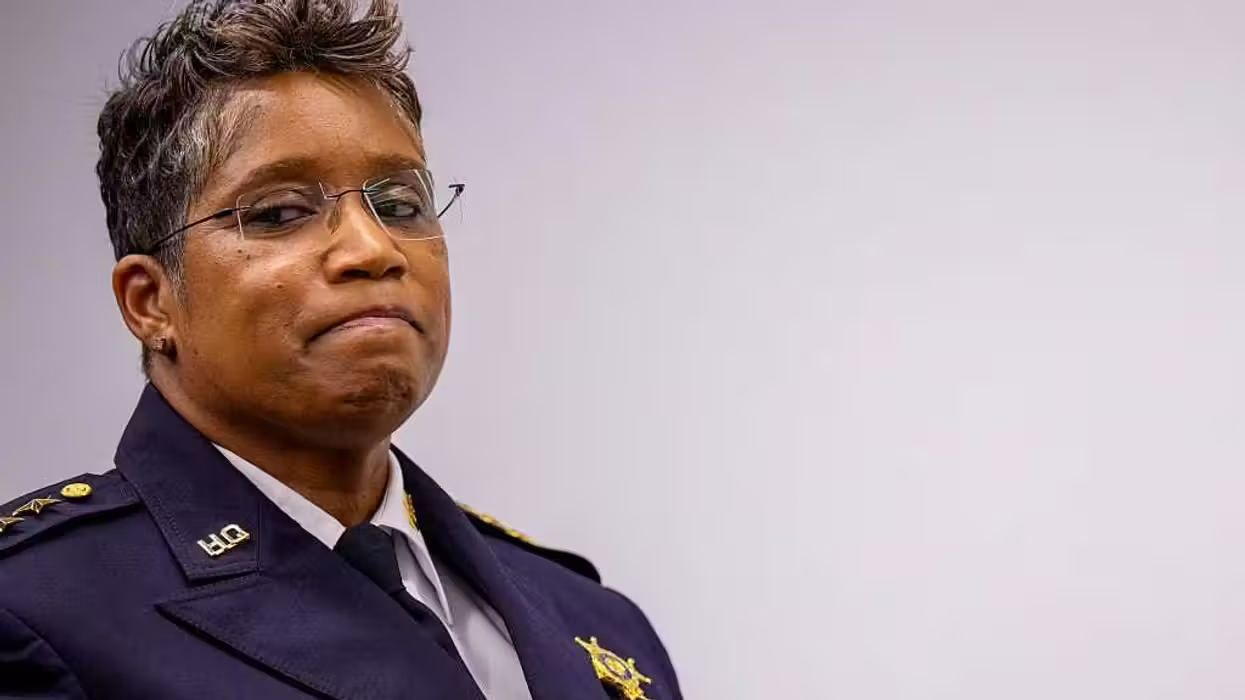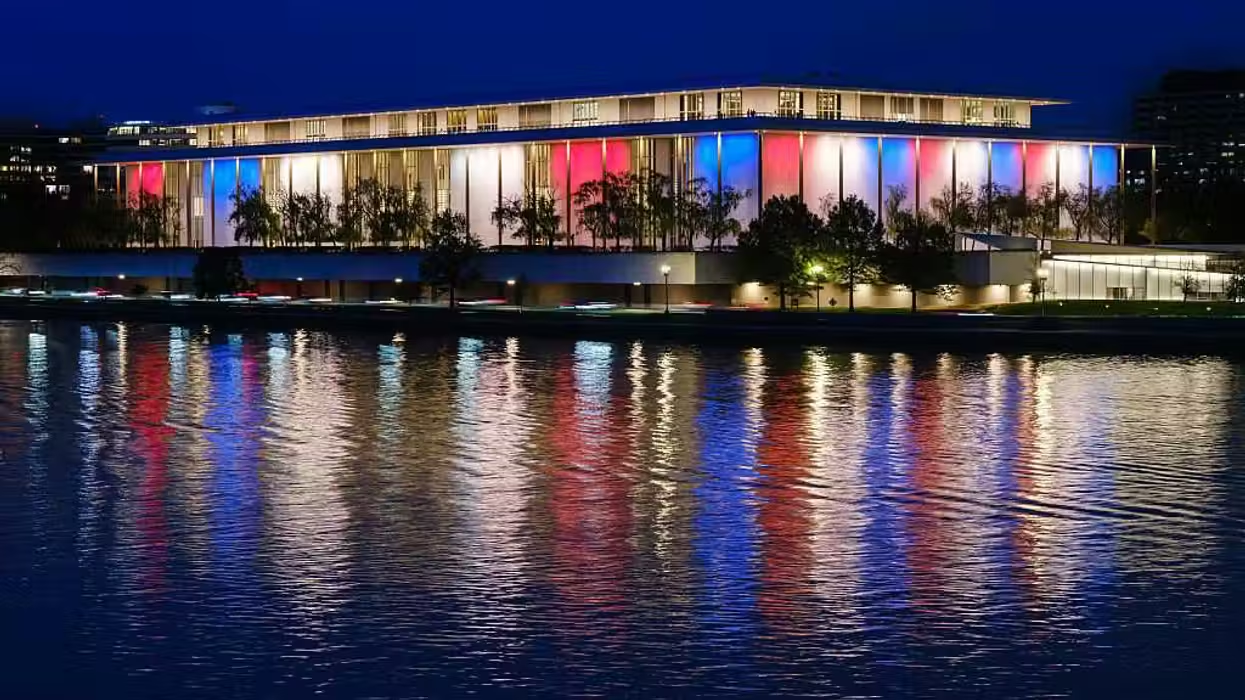
© 2025 Blaze Media LLC. All rights reserved.
TN Sparks First Amendment Debate Over Bills Aimed at Increasing Faith & Prayer in Public Schools
March 28, 2012
"...you're expressing your problem with the First Amendment and not with my bill."
 Prayer in public schools continues to be a highly-debated issue in states across America. In Tennessee, a new proposal that would pave the way for more faith activities in public schools is heading to the state's House floor for a vote.
Prayer in public schools continues to be a highly-debated issue in states across America. In Tennessee, a new proposal that would pave the way for more faith activities in public schools is heading to the state's House floor for a vote.
In a move that will surely anger church-state separatists, the bill would allow for rules governing prayer in public schools to be amended, while affording districts the right to allow students to meet and discuss faith and religion more freely before school events.
The Chatanooga Times Free Press describes the bill in detail:
Local school boards would be required to let select students voluntarily express their "religious viewpoints," be they Christian, Jewish, Muslim, Wiccan or atheist, at football games, school assemblies and graduation ceremonies under a bill moving in the House.The "Religious Viewpoints Antidiscrimination Act" passed on the House Education Committee on Tuesday on a voice vote after a motion to put it in summer study was tabled.
Rep. Andy Holt, R-Dresden, the bill's sponsor, said his legislation is needed to protect students. If anyone has issues with the bill, Holt said, "then you're expressing your problem with the First Amendment and not with my bill."
Proponents claim that the law would assist in protecting schools when religious events and discussions are held on their premises. Additionally, it would purportedly protect students who take part in various faith activities. Opponents like the American Civil Liberties Union, though, say that the law is unneeded and that the First Amendment does more than enough to address students' needs. The Free Press continues:
The bill requires school boards to provide a method, based on "neutral criteria," for the selection of student speakers at school events and graduation ceremonies. School systems would also must adopt a policy regarding a limited public forum and voluntary student expression of religious viewpoints.Only students in the highest two grade levels of the school and who also are a student council officer, football team captain, top class officer or other position of honor established by local schools "based on neutral criteria" would be eligible to use the limited public forum.
If the bill becomes law, it would open the door to all faiths -- not just Christianity -- to more openly exercise their rights and beliefs on school campuses. This is a concern for those opposed to its implementation.
"I do believe that a student or any citizen should have the right to express their religious viewpoint -- and not be discriminated against," said Republican Rep. Andy Holt.
On Monday, lawmakers voted in favor of the bill and it is now headed to the House floor for a vote. The Senate has not yet taken up the proposal, although another has been passed by both the House and the Senate that would allow teachers and other school employees to participate in prayer groups and religious activities. These activities can be on school grounds, but they must be initiated by the students and not the employees.
The Associated Press adds:
Sponsors of the bill brought it in part to support “See You at the Pole” gatherings, where students and their parents gather at school flag poles to pray.The measure was approved 29-1. The companion bill unanimously passed the House 93-0 earlier this month. Before it can go to the governor, the measure must go back to the House to approve an amendment that was added.
The legislation allows school personnel to participate in such activities as long as they don’t carry into the classroom or conflict with the assignments of the participant.
The activities also must be student-initiated and be held before or after school. The amendment clarifies that teachers can attend events in cases where a school may rent out its facilities to a church or faith-based organization.
The debate over these contentious bills comes as numerous issues surrounding religion in public venues have unfolded in Tennessee. Recently, a principal resigned after allegations that she discussed God and made negative comments about gay students. In anther related case, a different school in the state refused to run high school student Krystal Myers' column about her atheistic views and student-led prayer at yet another public school landed some coaches in hot water.
It seems that faith and religious expression are at the center of much of Tennessee's contemporary political discussion. Both proposals seem aimed at increasing free speech rights of students and employees, but neither comes without a fair share of controversy and resistance.
(H/T: NewsChannel5.com)
Want to leave a tip?
We answer to you. Help keep our content free of advertisers and big tech censorship by leaving a tip today.
Want to join the conversation?
Already a subscriber?
Billy Hallowell is a digital TV host and interviewer for Faithwire and CBN News and the co-host of CBN’s "Quick Start Podcast."
Billy Hallowell
Billy Hallowell is a digital TV host and interviewer for Faithwire and CBN News and the co-host of CBN’s "Quick Start Podcast."
more stories
Sign up for the Blaze newsletter
By signing up, you agree to our Privacy Policy and Terms of Use, and agree to receive content that may sometimes include advertisements. You may opt out at any time.
Related Content
© 2025 Blaze Media LLC. All rights reserved.
Get the stories that matter most delivered directly to your inbox.
By signing up, you agree to our Privacy Policy and Terms of Use, and agree to receive content that may sometimes include advertisements. You may opt out at any time.






